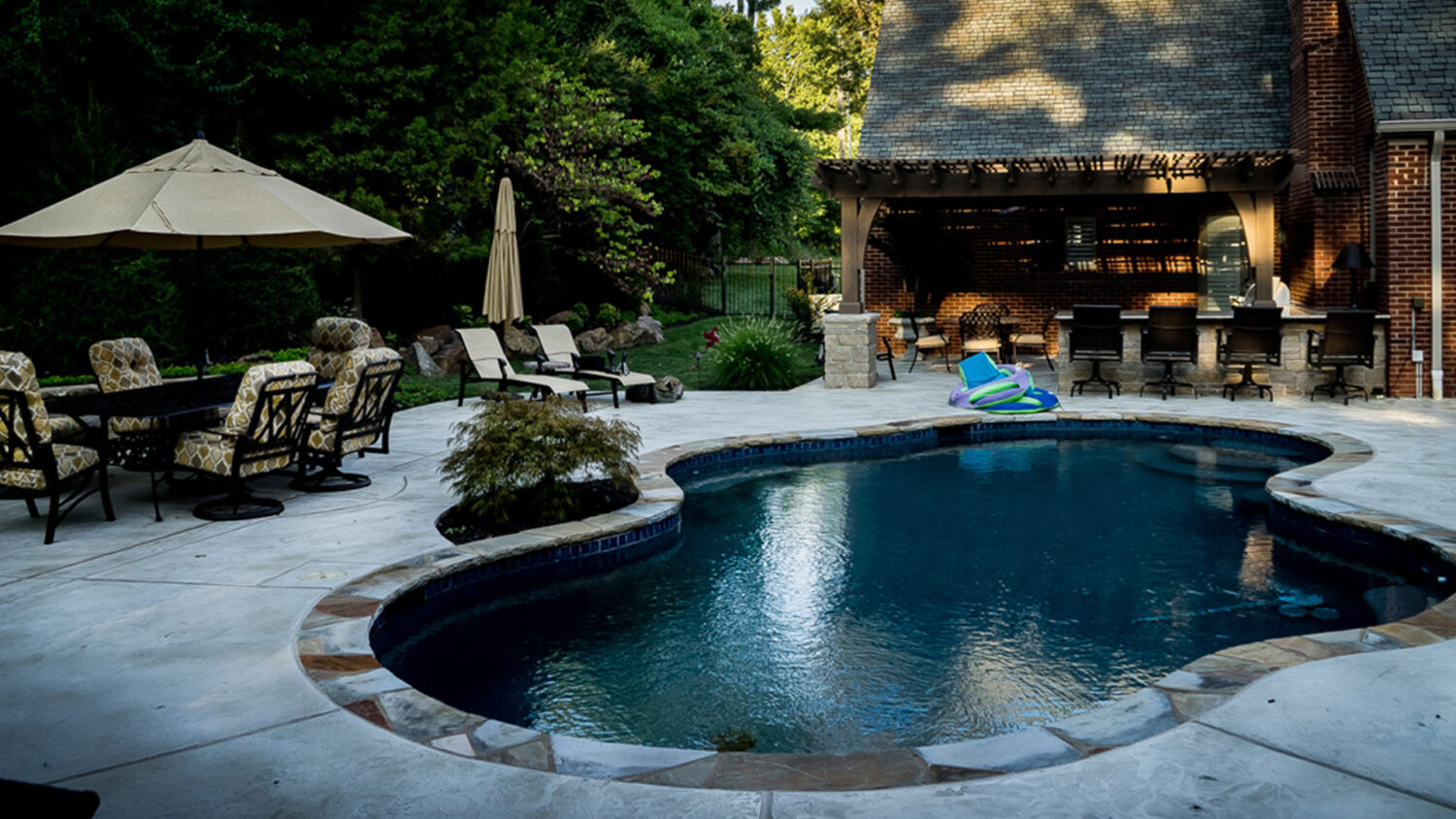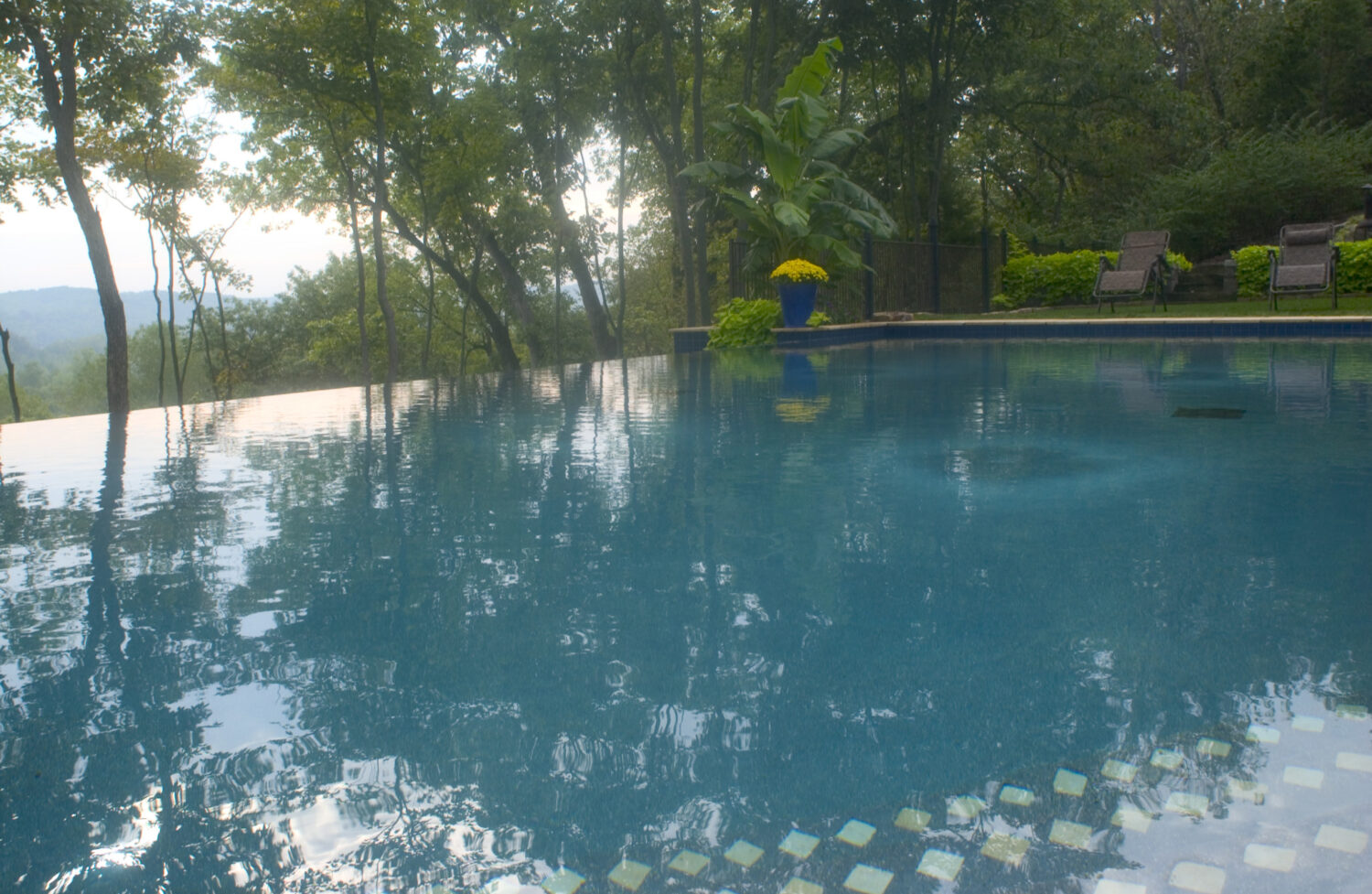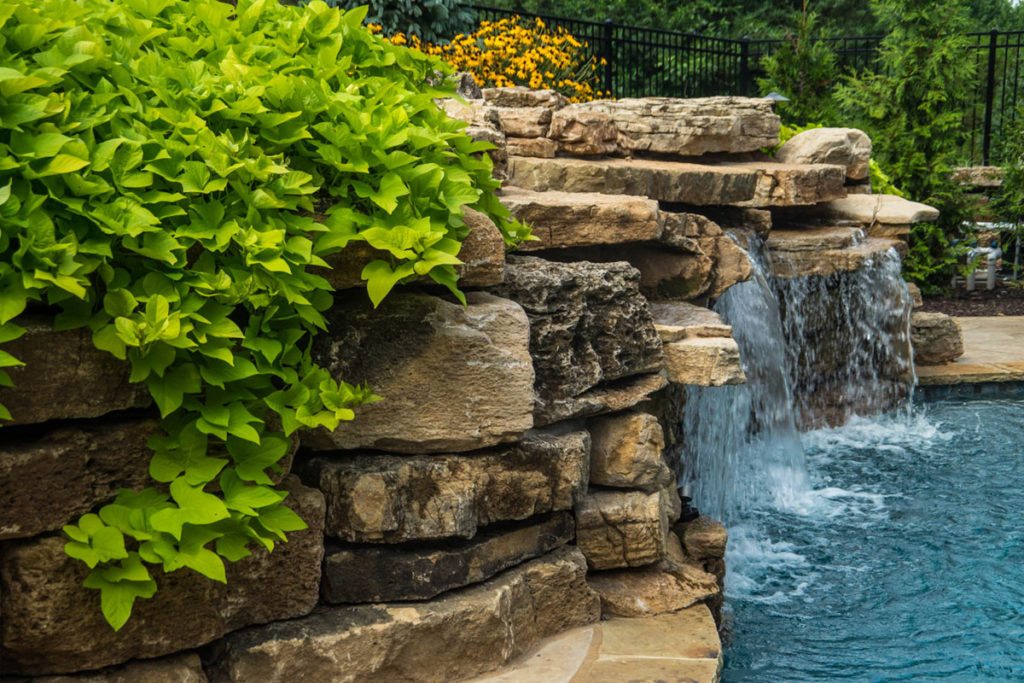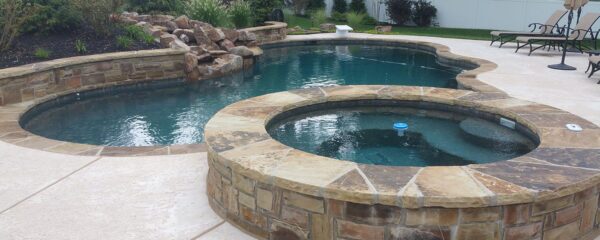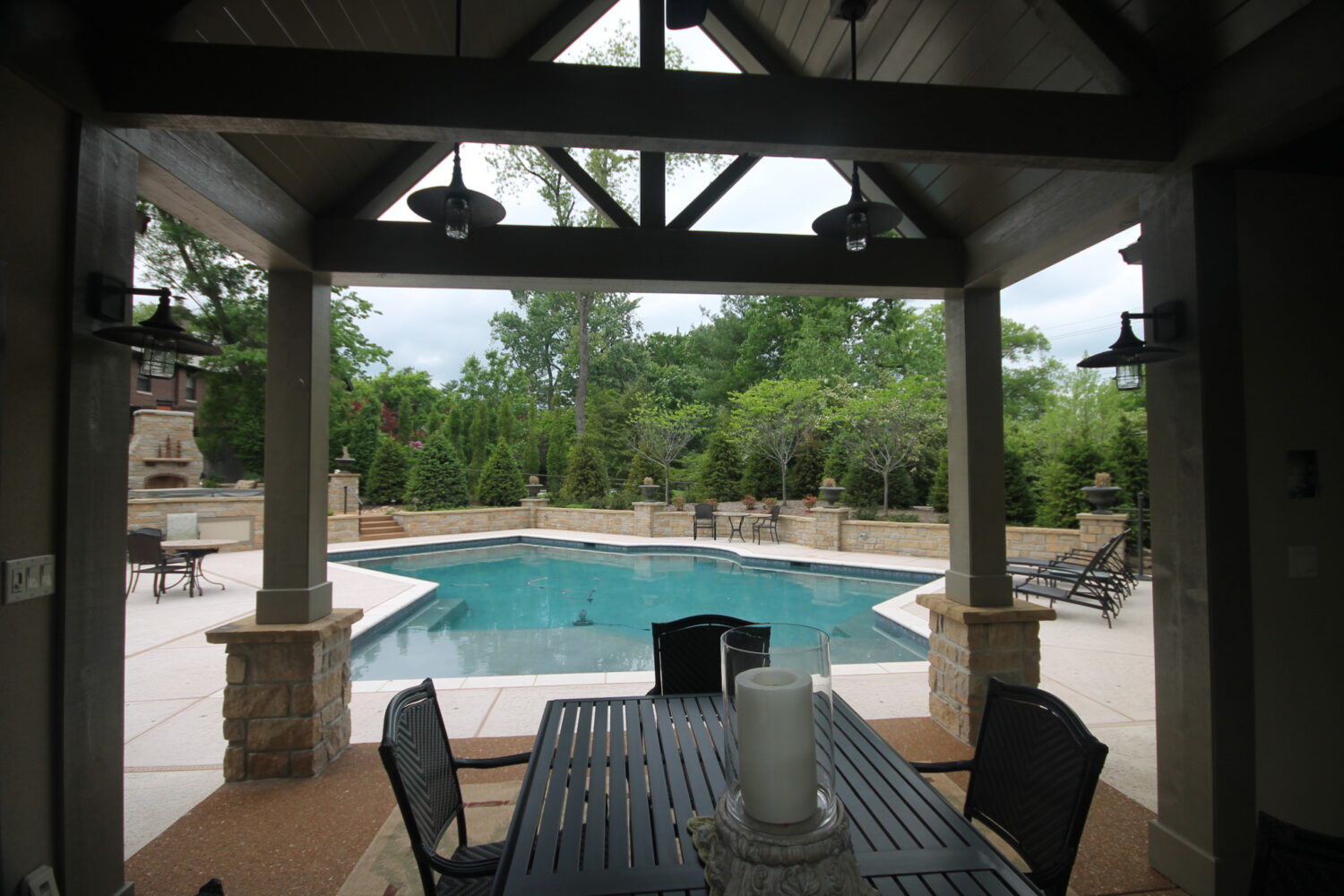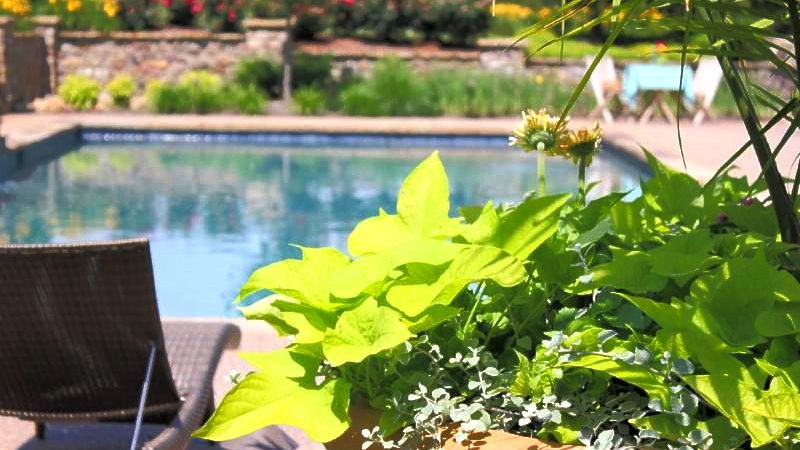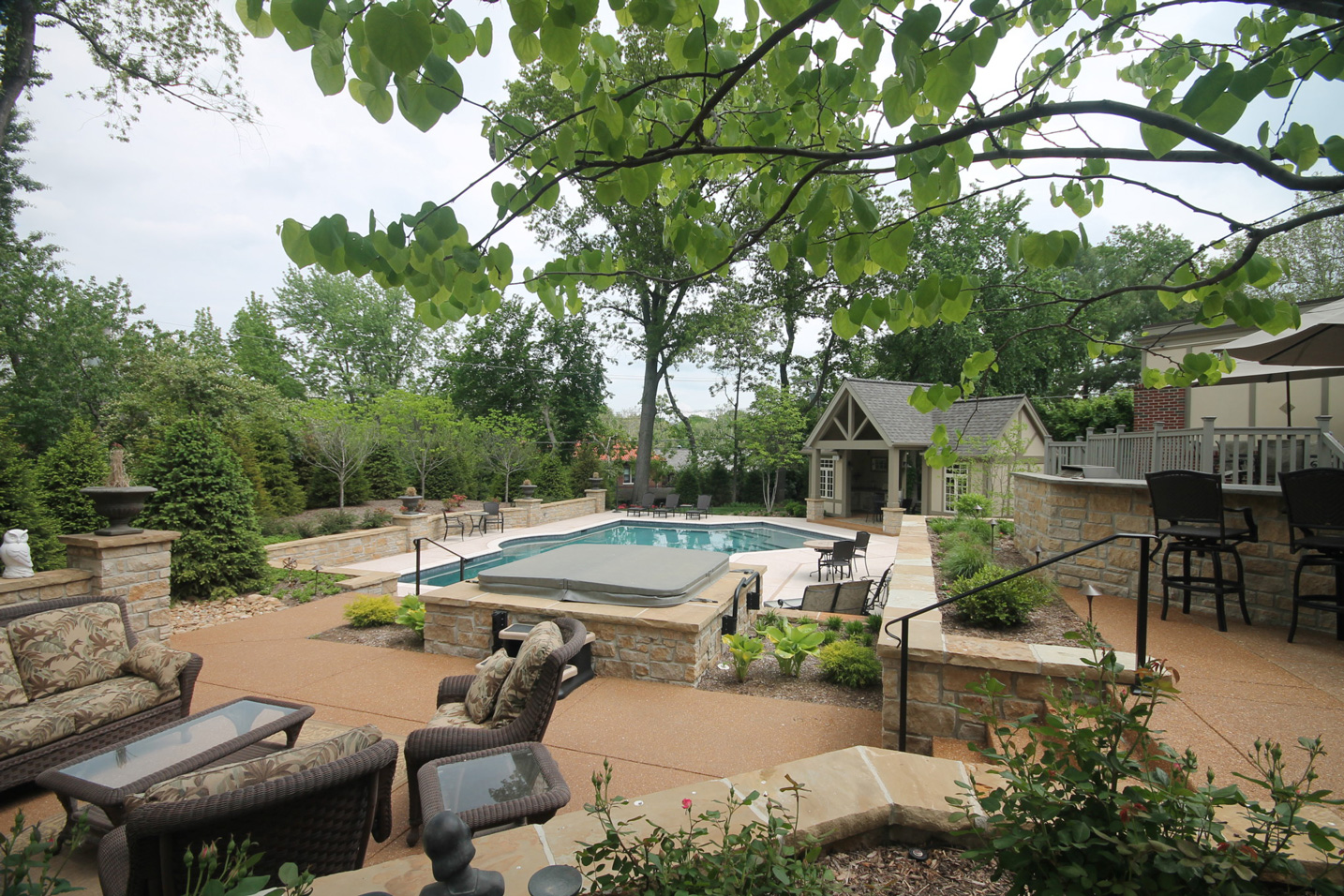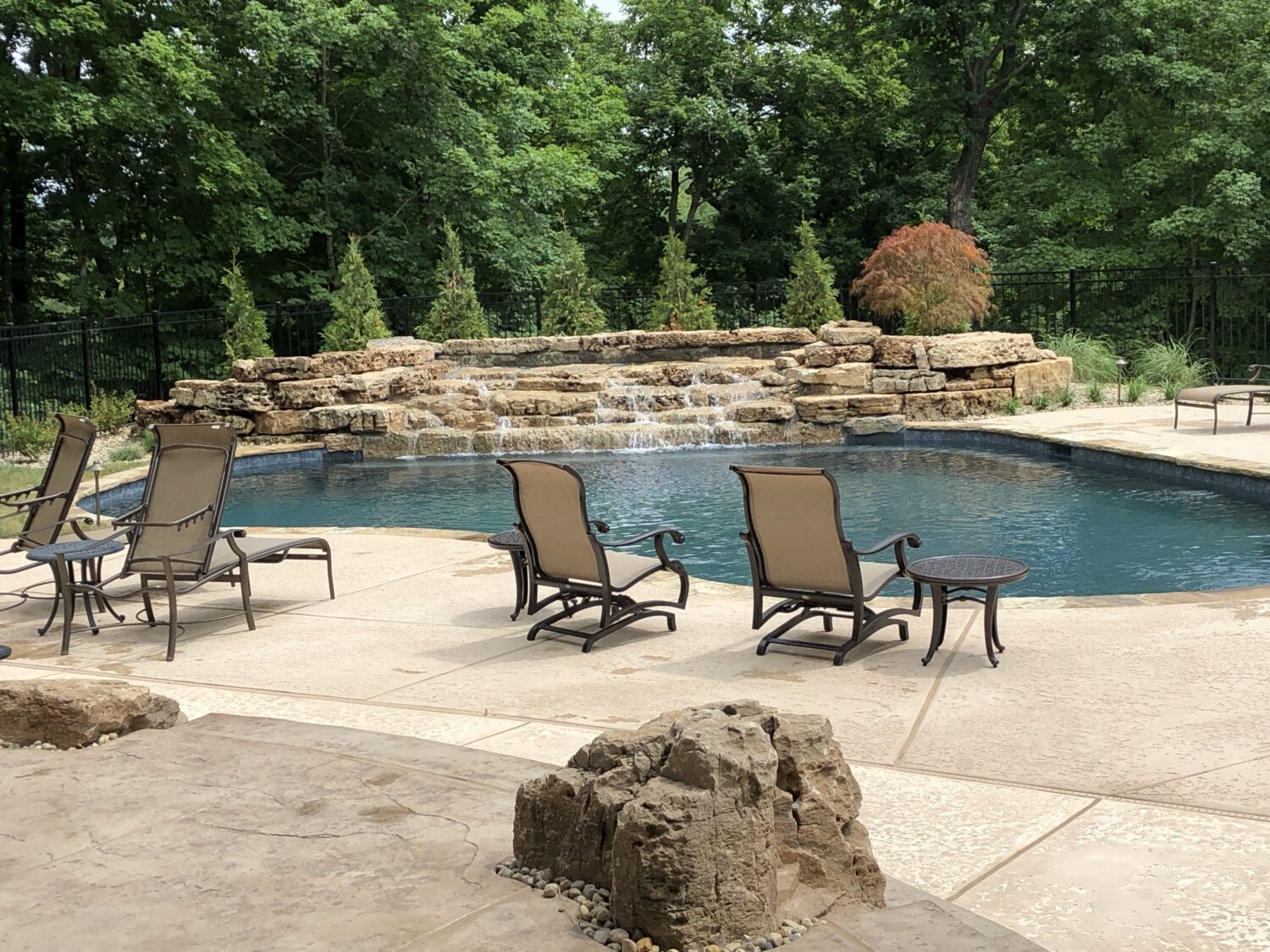Benefits of Investing in Eco-Friendly Water Features
Eco-friendly water features not only create a beautiful, serene environment but also offer significant environmental benefits. Whether you’re aiming to conserve resources, support wildlife, or reduce your carbon footprint, eco-conscious water elements provide lasting value. Poynter Landscape makes it a priority to ensure your outdoor landscape features are both beautiful and eco-friendly.
Eco-Friendly Water Preservation in St. Louis, MO
There are several ways to incorporate eco-friendly water features into your outdoor space. Here are some of the most popular and sustainable options:
- Natural Ponds: Unlike traditional pools that rely on chemicals and constant maintenance, natural swimming ponds take advantage of biological filtration systems via aquatic plants and beneficial bacteria. This creates a self-sustaining ecosystem that provides a natural swimming experience while blending into your landscape. With proper care, natural ponds require fewer resources and upkeep while enhancing local biodiversity. A wetland garden can also be used to absorb excess water and pllutants with little effort.
- Recirculating Water Features: Opting for recirculating fountains or ponds ensures that water is reused rather than wasted. These systems use pumps to circulate water continuously, reducing water loss from evaporation. By incorporating solar-powered pumps, you can minimize energy consumption and reduce your overall carbon footprint, making this option both water- and energy-efficient.
- Drought-Tolerant Water Features: Shallow water features like stream beds, rock gardens, or dry riverbeds can give the impression of deeper water while using minimal actual water. This approach reduces water usage and requires less electricity to maintain. The strategic use of drought-tolerant plants around these features further enhances the sustainability of the design, while still offering the calming effect of a traditional water feature.
- Rainwater Harvesting Systems: Integrating rainwater harvesting into your water features allows you to collect and reuse natural rainfall. The stored water can be used to feed ponds, fountains, or irrigation systems that reduce dependence on municipal water sources and lowers your overall water consumption. It’s an excellent way to make the most of natural precipitation, especially in wetter seasons.
- Permeable Surfaces: Designing water features with permeable surfaces like gravel or porous pavers around them can help reduce runoff and improve water retention in the soil. This allows water to seep back into the ground, replenishing local groundwater sources and reducing erosion, making it an eco-friendly choice for sustainable landscaping.
- Solar-Powered Water Features: Installing solar-powered fountains, pumps, or aerators is a simple yet impactful way to make your water features more sustainable. These systems harness energy from the sun, eliminating the need for electricity and further reducing your environmental impact. They’re also a low-maintenance, cost-effective option for anyone looking to reduce energy consumption.
See some of our work below:
Benefits of Investing in St. Louis, Eco-Friendly Water Features
Eco-friendly water features not only offer a stunning visual and auditory experience but also provide several environmental and practical advantages. Whether you’re focused on sustainability, supporting wildlife, or reducing your carbon footprint, integrating eco-conscious water elements into your landscape can have a lasting impact. Here are some key benefits to consider when opting for an environmentally friendly water feature:
- One of the most obvious reasons to implement eco-friendly water features is conserving water. Using rainwater harvesting, greywater systems, or HVAC condensate as part of your landscape design helps reduce reliance on municipal water supplies. Incorporating recirculating systems or rainwater collection ensures you’re not wasting natural or recycled water sources, which not only lowers your environmental footprint but also cuts down on water costs.
- Another benefit of natural water features is promoting biodiversity. A well-designed lake, pond, or stream can become a thriving habitat for local wildlife, from birds and fish to amphibians and beneficial insects. Supporting these species not only enhances the beauty of your garden but also plays a key role in maintaining a balanced ecosystem, helping native plants and animals thrive.
- Having the right (and healthy) water features in place can also reduce pollution. Flowing water systems, particularly those with natural filtration like wetlands or bioswales, can help remove pollutants from runoff before they enter the groundwater or municipal systems. These natural filters work to improve the overall water quality in your landscape and beyond, contributing to a cleaner environment.
- Energy Efficiency is another consideration with eco-friendly water features. Solar-powered pumps and energy-efficient systems are available, reducing your reliance on traditional electricity sources and further lowering your environmental footprint. This way, you can enjoy the beauty and tranquility of water features while being mindful of energy use.
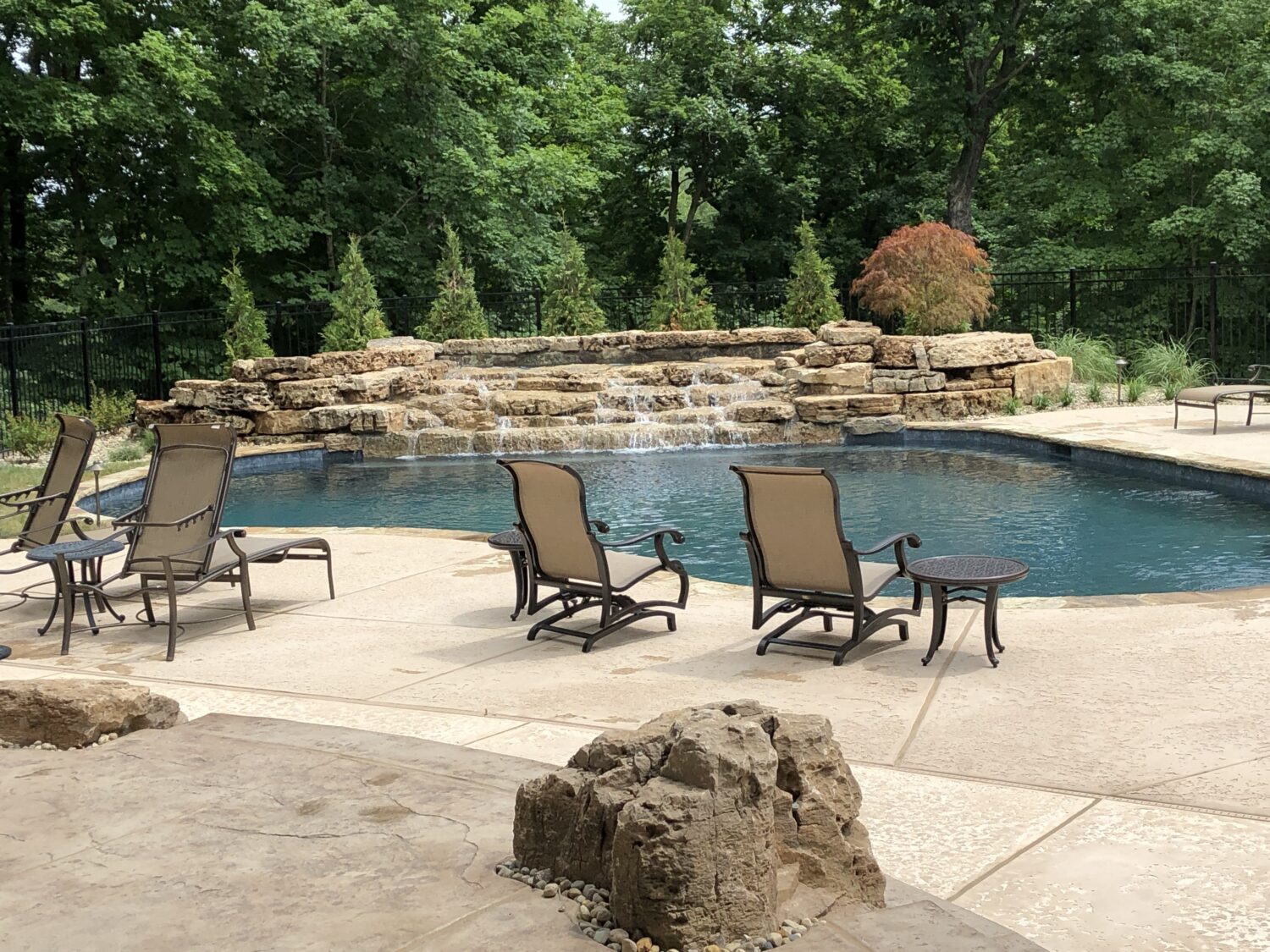
How To Responsibly Recycle Water in St. Louis
Building owners and managers can implement water-saving strategies such as rainwater harvesting, HVAC condensate collection, and greywater recycling for use in water features or irrigation. Additionally, utilizing municipal recycled water, typically delivered through purple pipes, provides another sustainable option for hardscaping. These water-efficient methods not only help preserve local water supplies but also support the functionality of eco-friendly water features, ensuring they operate sustainably over time. There are other water conservation activities you can do within your home, too.
Eco-Friendly Water Features in St. Louis | Poynter Landscape
Investing in eco-friendly water features is more than just a commitment to sustainability—it’s a way to harmonize your outdoor space with nature while enhancing the aesthetic and practical value of your home and its landscape. Whether you’re focused on conserving resources, reducing pollution, or creating a haven for wildlife, these features offer countless benefits that will not only enrich your garden but also support a healthier environment. By making thoughtful choices in design and materials, you can enjoy the beauty and tranquility of water while treading lightly on the planet.
Don't wait to contact our team and view some of our projects and other services for more information. The Poynter team has proven itself as pros throughout the Greater St. Louis area--you can read why on our testimonials page.
Types of Water Features for Your Garden
Poynter Landscape Scholarship: Why Do You Love the Outdoors?


